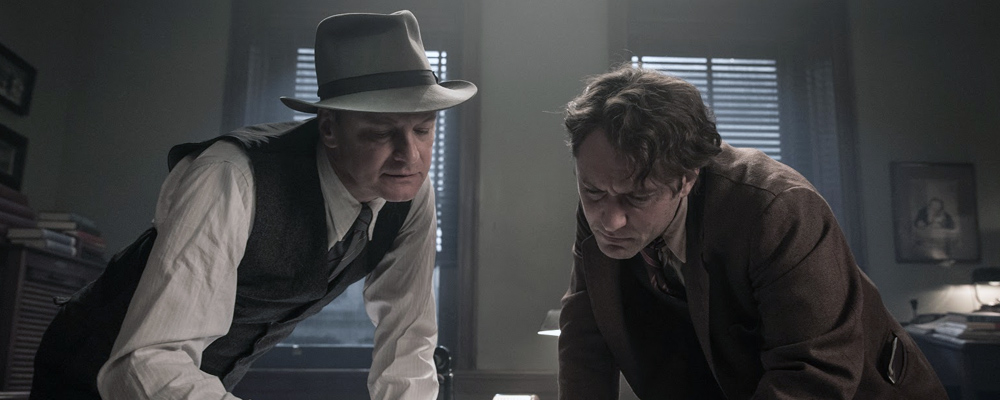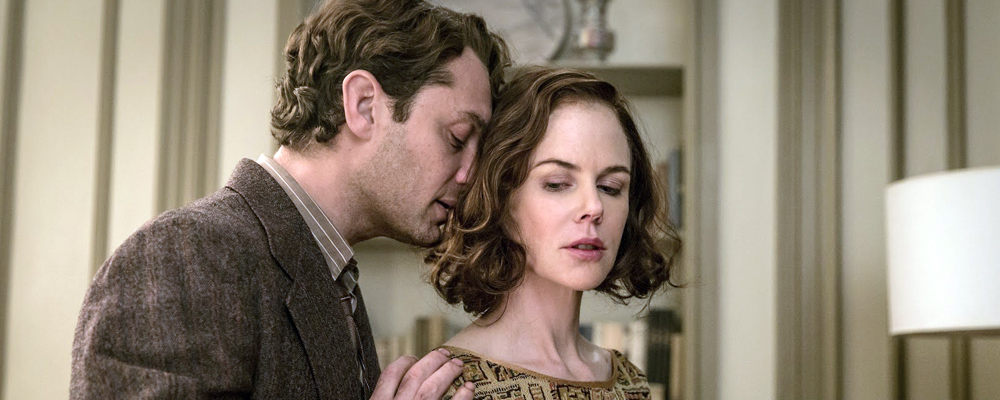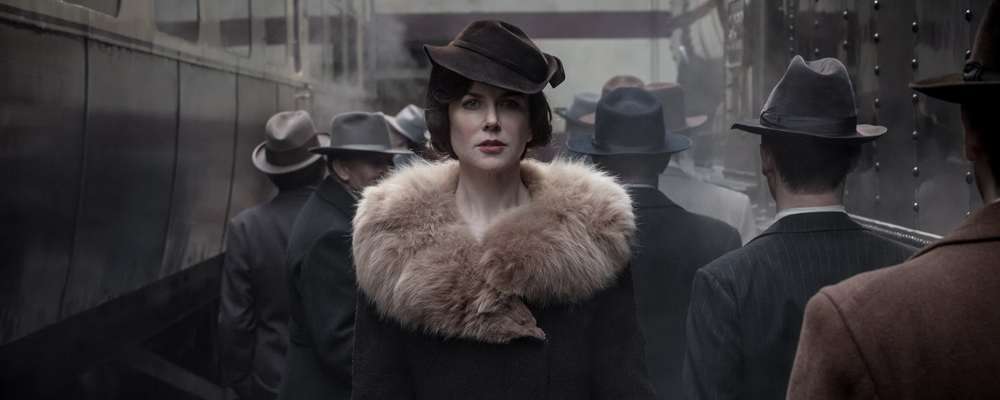‘Genius,’ Starring Colin Firth and Jude Law, Depicts an Unlikely Friendship of American Literary History
Allyson Gronowitz
A film about an editor at a New York City publishing house would be a tough sell in any box office climate, especially in one that favors caped crusaders and bombastic explosions. But the protagonist in “Genius” (adapted by Oscar nominee John Logan from A. Scott Berg’s biography, “Max Perkins: Editor of Genius”) finds beauty and emotional drama in unexpected places.
“Genius,” the first feature film from longtime theater director Michael Grandage, explores the professional and personal bond between prescient literary agent/editor Max Perkins (Colin Firth) and the tumultuous young writer Thomas Wolfe (Jude Law). Working for publishing giant Charles Scribner’s Sons in the early 20th century, Max had a knack for identifying unknown talent and was responsible for launching the literary careers of American legends F. Scott Fitzgerald and Ernest Hemingway, both of whom make brief cameos in the film (played by Guy Pearce and Dominic West, respectively).
The story begins – as many do – on the streets of NYC, reconstructed in all of its classic glory. A man stands on the sidewalk, smoking in the rain, gazing up at the looming Scriber’s building. It’s the one moment of stillness before black and white morphs into full color; shoes pounding the wet pavement in a cadence reflecting the euphoric energy that Thomas captures in his writing.
But when Thomas first enters Max’s office, he expects only the rejection that has plagued him before the start of the film. When Max – enamored by Thomas’ lyrical effulgence, sensing another Fitzgerald or another Hemingway – informs Thomas of his decision to publish, Thomas is ecstatic, releasing a primal whoop that leaves Max looking both alarmed and enchanted. It marks the beginning of a relationship that would come to define them both.
“Genius” charts the evolution of Thomas’ first two novels, “Look Homeward, Angel” and “Of Time and the River,” in the context of this unlikely partnership. Smart film editing ratchets up the excitement of Max and Thomas’ collaborative book editing scenes as the merciless scratch of red pencil and the rhythmic clacking of typewriters accentuate the linguistic symphony created by these two men. In a metatextual way, the skillful editing of “Genius” demonstrates that a story is as much the result of its editors as its writers, a notion expressed by Max as an existential anxiety. “That’s what we editors lose sleep over,” he tells Thomas. “Are we really making books better . . . or just making them different?”
As Thomas Wolfe, Law is exuberant. His performance often feels over-gesticulative, like he’s on-stage rather than on-screen. But the intensity is clearly intended; Early on in the film, Thomas himself admits that he comes across as “too loud, too grandiose” and “not quite real.” Aline Bernstein (Nicole Kidman), Thomas’ tortured muse/mistress and a fascinating figure in her own right, describes his absence saying, “After him, there’s a great hush.”
By contrast, Firth’s Max Perkins is gentle and reserved, evoking shades of Firth’s Oscar-winning performance in “The King’s Speech.” Given their personalities, the friendship between Max and Thomas is more than a little improbable, despite its historical basis. But professionally and idealistically, each has found a kindred spirit in the other, a lover of language and stories and artistic expression. It’s an ideal we can relate to all too well.
“Genius” opens June 10 in limited release across the United States.





